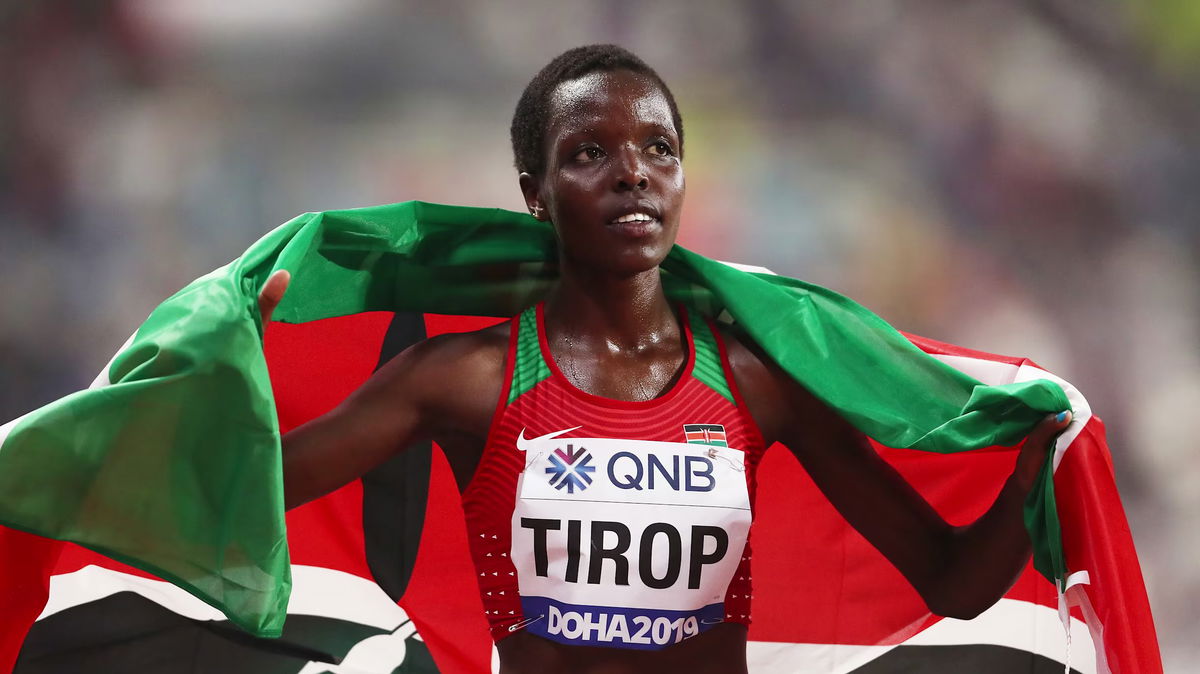

Just days after the shocking demise of Kara Welsh, the 21-year-old University of Wisconsin-Whitewater gymnast, another violent death has shocked the world. The 33-year-old Ugandan marathon runner, Rebecca Cheptegei, lost her life following a particularly violent assault by her boyfriend. On Sunday, the track and field star’s boyfriend doused her with petrol and set her on fire.
Watch What’s Trending Now!
According to the police reports, Cheptegei had a scuffle with her boyfriend over a piece of land that she bought in Trans Nzoia. As per the Trans Nzoia County Police Commander, Jeremiah Ole Kosiom, her boyfriend, then put the Olympian on fire. Rebecca Cheptegei suffered burns over 75% of her body, and she succumbed to her injuries on September 5.
After competing in the 2021 Tokyo Olympics, Agnes Tirop returned home to Kenya & was stabbed to death by her husband. She was 25.
Femicide. pic.twitter.com/XHPxkKAs3l
— Lillz (@LillzTIL) September 5, 2024
ADVERTISEMENT
The death of the Ugandan star brought back the memory of another African Olympian who lost her life in a similar manner. Fans on X, hugely disturbed over the rising cases against women athletes in Africa, recall the death of Agnes Tirop that happened back in August 2021. Just like Rebecca Cheptegei, Tirop was also assaulted, which led to her demise. The two-time World Championship bronze medallist from Kenya was found dead in her apartment with a fatal wound on her neck.
Incidentally, her husband was arrested for the death of her wife, and the case is still underway. The death of the 25-year-old long-distance Kenyan runner was a shocker for the athletic community. It led to the formation of the non-profit charity foundation ‘Tirop’s Angels’ to combat domestic violence against women and girls in Kenya by a group of Kenyan athletes.
Responding to the shocking demise of Rebecca Cheptegei, Tirop’s Angels Foundation condemned the incident and demanded Swift justice to curb such actions in the future. One of the founding members of the non-profit, Joan Chelimo, a Kenyan long-distance runner, took to Instagram to express her sorrow over the tragic incident. She captioned, “As an athlete and advocate against gender-based violence, I am deeply shaken and outraged by the horrific attack that took the life of Rebecca Cheptegei.”
ADVERTISEMENT
However, the deaths of the Ugandan Olympian Rebecca Cheptegei and the Kenyan star sprinter Agnes Tirop are just two examples of the widespread violence against women in African countries. This year, in January, thousands of women took to the streets in Kenya in one of the largest protests against female violence. They were protesting against the shocking death of 14 women following female violence in January alone.
The demise of Rebecca Rebecca Cheptegei was disturbing and heartbreaking for the entire world. Following her death, the internet was lit with people raising their voices over the grim situation and calling for swift action. Fans took to X in droves to express their anger and condemn the brutal crime.
ADVERTISEMENT
Fans paid tribute to both Rebecca Cheptegei and Agnes Tirop
The horrific death of Rebecca Cheptegei ignited a firestorm of outrage on social media. The brutal killings of African athletes like Rebecca Cheptegei and Agnes Tirop have left fans seething with anger and heartbreak. One distressed fan on X captured the collective grief, writing, “This is so unfair. RIP Champion.” Another expressed sheer disbelief: “What?! Omg!”
ADVERTISEMENT

The comments section became a powerful echo chamber of pain and frustration, as fans grappled with the senseless violence. “That’s really sad. RIP. This is so heartbreaking. 💔💔,” one mourner shared, their words dripping with sorrow. But others refused to let the discussion end there, digging deeper into the systemic issues behind these tragedies. “I feel fragile ego is playing a part in this. It’s grotesque,” one fan angrily noted, pointing to a larger societal problem. Another voiced a fear that justice might never be served, saying, “And the man will go free,” likely referencing Agnes Tirop’s husband, who has yet to be held accountable for her murder.
ADVERTISEMENT
The fury is palpable, as people demand answers and accountability for these horrifying acts of violence. The cry for justice is loud and relentless, fueled by the anguish of seeing yet another bright life extinguished far too soon.
Top Stories
Chiefs Announce Relocation From Missouri to Kansas to Build New Stadium

Is Philip Rivers Catholic or Mormon? Religion, Ethnicity & More About Colts QB

Kansas City Mayor Sends Strong Message to Clark Hunt After Chiefs Confirm Arrowhead Exit

LIV Golf Issues Statement as Pro Announces Shock Retirement After Getting Relegated

DK Metcalf Awaits Huge Punishment From NFL After Controversial Incident vs Detroit Lions

Another Almost Fatal Disaster Surfaces From Statesville Airport Amidst Ongoing Greg Biffle’s Crash Investigation

ADVERTISEMENT
ADVERTISEMENT
ADVERTISEMENT

